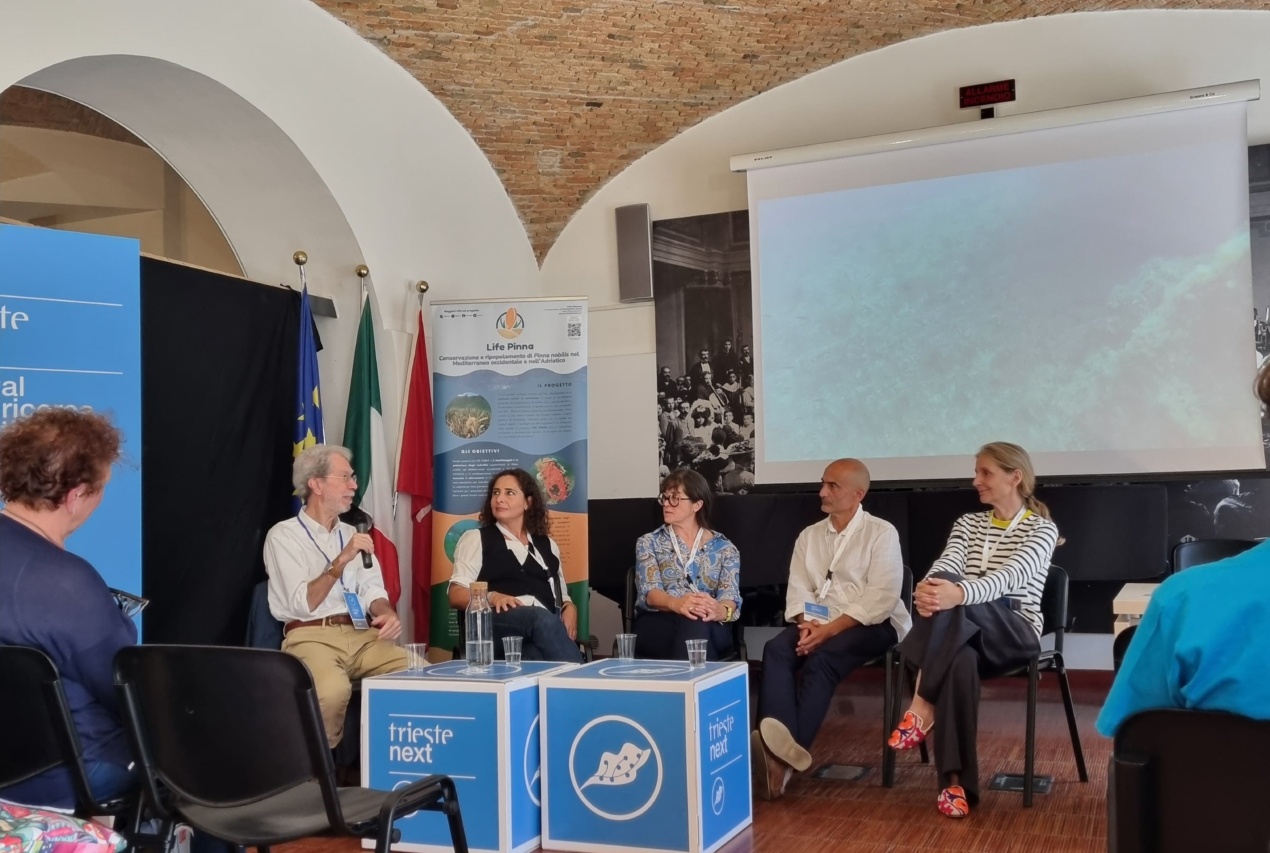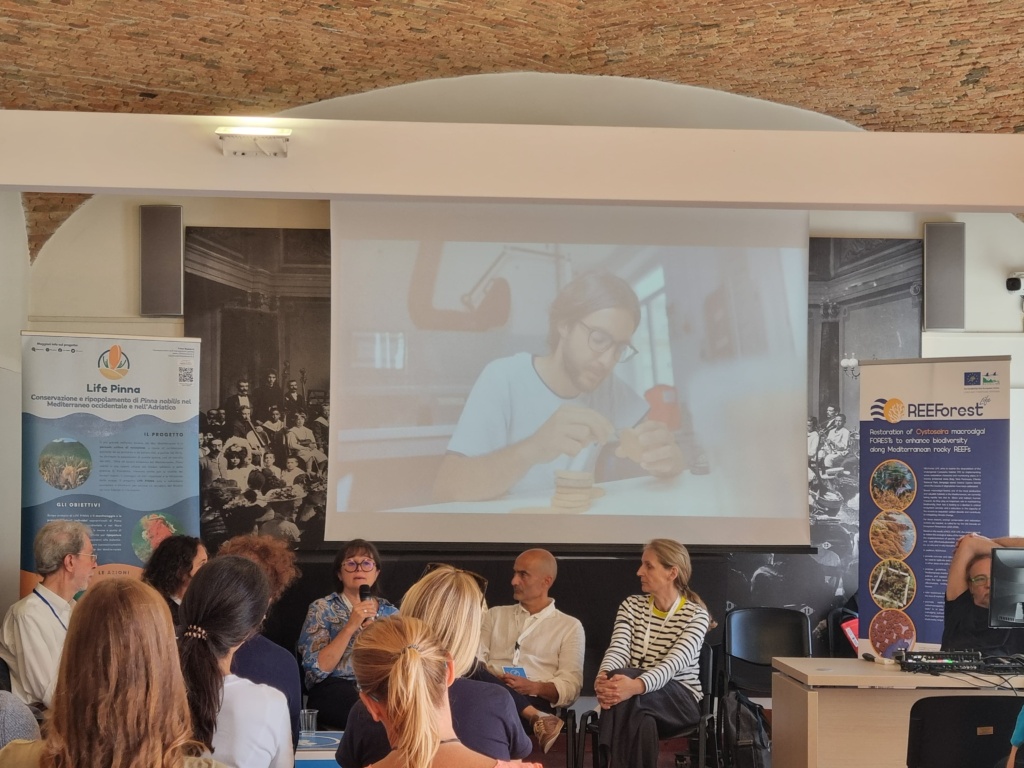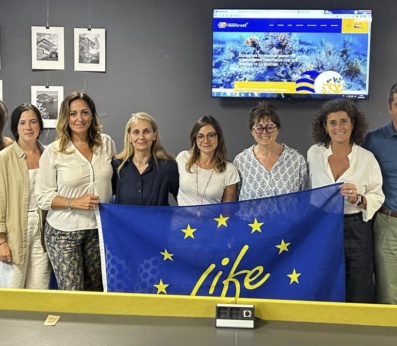When autumn begins, it’s time for Trieste NEXT, the largest science festival in Friuli-Venezia Giulia.
A talk about the REEForest project had to be held! On September 28th, on a sunny Saturday morning, our researchers talked about marine reforestation.
You can catch up the whole talk at this link.
Mariachiara Chiantore from the University of Genoa, Saul Ciriaco from Shoreline, Antonella Falace from the University of Trieste, and Marina Penna from ISPRA presented their different marine restoration activities.
The talk focused on the reforestation of Cystoseira by REEForest and the restocking of the Pinna nobilis species, a large bivalve mollusc, by the LIFE Pinna project.


LIFE Pinna is a LIFE project co-financed by the European Union.
As of 2019, a lethal infection almost exterminated the Pinna nobilis populations in the Mediterranean.
These molluscs provided essential ecosystem services, such as filtering the water column and supporting biodiversity.
The project aims to restock healthy individuals of Pinna nobilis: after breeding and growing in the laboratory, new individuals will be transplanted to the seafloor.
Similar to the reforestation of Cystoseira, the restoration process combines research and field activities.
The spawning phase and an initial growth phase take place in the laboratory, until the species to be restored reaches a size suitable for survival after transplantation.
The marine restoration carried out by both REEForest and LIFE Pinna aims to restore the ecosystem services once provided by the species targeted.
It is often impossible to restore the marine environment to its original condition because environmental parameters have irreversibly changed, but over time the functions that the declining species once provided can be restored.
Our experts described the efforts required for active restoration and answered questions from the audience.
One question in particular focused on the relationship between marine restoration and communication activities.
Professor Falace answered that being able to communicate the activities carried out by projects such as these to the public is crucial.
In the case of REEForest, which is dedicated to the restoration of brown seaweed, communication with the public is particularly important: in the common perception, seaweed is an obstacle to swimmers’ fun in the summer.
It is up to us to change this public opinion, through events such as Trieste NEXT, and to tell people about the essential services that seaweed and other marine organisms perform.
We look forward to seeing you at our next public event!




